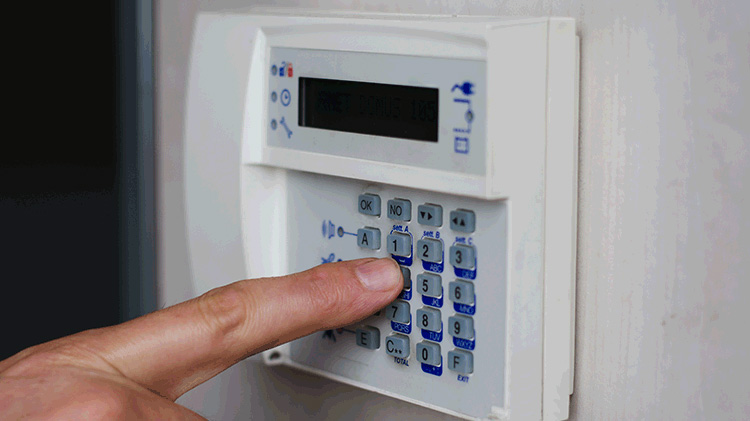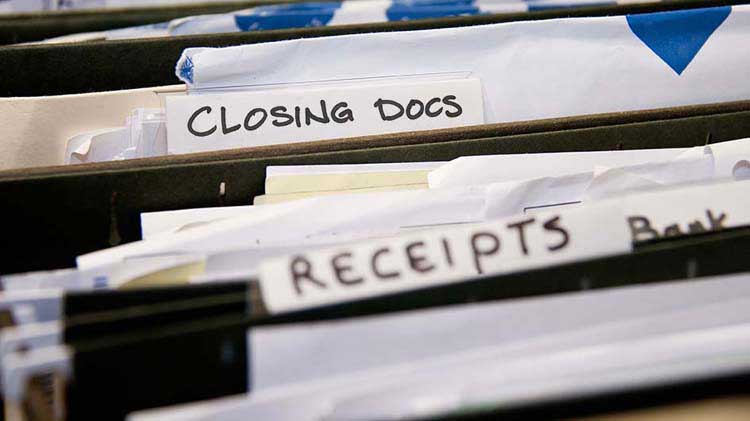How long to keep documents before shredding
Do you know how long to keep tax records, bank statements, utility bills and other important documents? Here are some suggestions to help.
Whether you’ve got a state-of-the-art filing system, or just a couple of old shoe boxes, knowing how long to keep important documents before shredding or deleting is key to helping you stay organized so you can avoid unnecessary clutter.
Keep monthly records until transactions have been verified
Some documents only need to be kept for a short time before they can safely be disposed of. For things like monthly bills and account statements, consider keeping these until you’ve been able to verify that all transactions have been cleared and all payments have been posted to the accounts. This usually happens within the month, but sometimes it can take a little longer.
- Utility bills
- Bank statements
- Credit card statements
Keep insurance policies while they remain active
When it comes to insurance, consider keeping current documentation and updated proof of insurance as long as you’re paying on the policies, and they remain active. Any time you receive any new/updated policy information, consider shredding the outdated documents. And while most states accept electronic versions of your auto insurance card, you may want to keep a printed version in your glove compartment just in case.
- Car insurance
- Homeowners insurance
- Renters insurance
- Life insurance
- Umbrella insurance
Keep tax records according to IRS recommendations
The IRS has developed a list of recommended time periods to keep tax records based on a taxpayer's situation.
In general, tax returns can be examined by the IRS for up to three years after filing. However, that period can increase in certain situations. For example, it can increase to six years in cases of unreported income that is more than 25% of the gross income shown on the tax return, it can increase to seven years if a claim was filed for a loss from worthless securities, and it can extend indefinitely in cases of fraud or when no return was filed.
Luckily the IRS accepts legible electronic records, which can come in handy if you prefer to save things electronically. Just see that you delete any tax-related records from your electronic devices before trading them in or disposing of them to help protect yourself from identity theft and fraud.
Keep original printouts of personal documents forever
Some documents should be kept forever. And because photocopies and scanned images of legal papers are usually not valid, think about storing original printouts in a fire-resistant safe.
- Marriage licenses
- Divorce decrees
- Custody decrees
- Birth certificates
- Adoption papers
- Death certificates
- Wills
- Trusts
- Powers of attorney
- Social Security cards
- Citizenship papers
- Military records
Keep property and investment records while you own the asset
For property and investments, hang onto important paperwork and documentation as long as you own the asset.
- Real estate ― deeds, mortgage documents, closing papers and receipts for home improvements
- Vehicles ― titles and purchase or lease documents
- Household items ― receipts, warranty certificates and operating instructions
- Financial ― investments, stock certificates and retirement plan records
Printouts vs. electronic copies
Many important documents can now be stored electronically. In fact, you can even sign up for electronic billing, which not only can help you stay organized, but can also help the environment by eliminating unnecessary waste. Another benefit to online billing is that you won’t have to remember how long you’ll need to hold onto the documentation, because many billing companies will do it for you.
Don't forget to shred it before you toss it
Once you’ve determined you no longer need to hang onto a document that contains sensitive information, shred it so your personal information doesn’t accidentally fall into the wrong hands.




